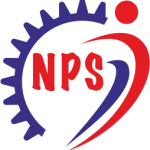The Advancement of Google Search: From Keywords to AI-Powered Answers
Dating back to its 1998 introduction, Google Search has morphed from a rudimentary keyword interpreter into a agile, AI-driven answer infrastructure. Originally, Google’s discovery was PageRank, which ranked pages considering the grade and abundance of inbound links. This changed the web apart from keyword stuffing aiming at content that secured trust and citations.
As the internet spread and mobile devices boomed, search approaches shifted. Google rolled out universal search to fuse results (articles, pictures, videos) and then emphasized mobile-first indexing to show how people practically peruse. Voice queries with Google Now and after that Google Assistant stimulated the system to interpret natural, context-rich questions instead of brief keyword strings.
The succeeding bound was machine learning. With RankBrain, Google got underway with deciphering at one time fresh queries and user mission. BERT progressed this by grasping the delicacy of natural language—relationship words, circumstances, and associations between words—so results more appropriately matched what people purposed, not just what they put in. MUM amplified understanding across languages and mediums, authorizing the engine to tie together linked ideas and media types in more complex ways.
Nowadays, generative AI is transforming the results page. Tests like AI Overviews integrate information from varied sources to furnish short, targeted answers, generally featuring citations and further suggestions. This decreases the need to engage with varied links to piece together an understanding, while but still navigating users to richer resources when they desire to explore.
For users, this progression leads to more prompt, more exact answers. For writers and businesses, it recognizes thoroughness, distinctiveness, and lucidity rather than shortcuts. Ahead, expect search to become increasingly multimodal—harmoniously mixing text, images, and video—and more personalized, calibrating to settings and tasks. The voyage from keywords to AI-powered answers is ultimately about reimagining search from detecting pages to performing work.
